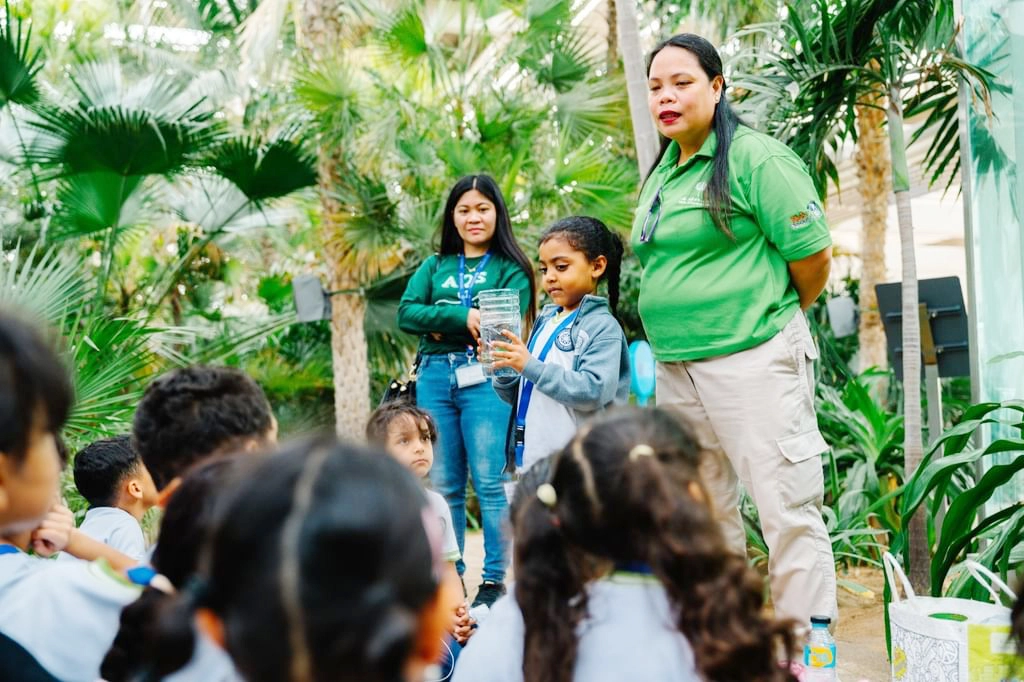Public parks across Abu Dhabi are increasingly being used as educational spaces, with students from various school levels engaging in nature-based learning that complements classroom education.
Nature-based learning
What were once primarily recreational green areas are now evolving into interactive learning environments. Educational programmes introduced in the parks aim to connect students with local biodiversity, sustainability practices, and Emirati heritage through hands-on activities.
At Umm Al Emarat Park, school visits are structured by age group. Younger students learn about native animals and desert plants, while older groups explore topics such as Bedouin culture, environmental adaptation, and the UAE’s natural ecosystems. High school students also study the environmental legacy of the late Sheikh Zayed bin Sultan Al Nahyan.
Since the launch of the programme in 2016, more than 80,000 students have taken part, including over 3,300 during the 2024–2025 academic year.
Heritage and sustainability
Rasha Qabbalawi, spokesperson for Umm Al Emarat Park, said the goal is to “combine learning and fun in the heart of nature, opening doors of discovery for students through interactive experiences.”
She added that the park’s mission includes strengthening students’ ties to Emirati heritage, promoting sustainability, and expanding partnerships with schools.
Abu Dhabi City Municipality is also working to convert several public parks into modern learning spaces. The initiative includes new environmental programmes, workshops, and improved facilities aimed at raising awareness about recycling, water conservation, and biodiversity.
Future steps include potential collaboration with the Ministry of Education and the Department of Education and Knowledge. These efforts are expected to help embed outdoor education into school curricula, turning public parks into accessible, open-air classrooms that support long-term environmental learning.
tanvir@dubainewsweek.com

